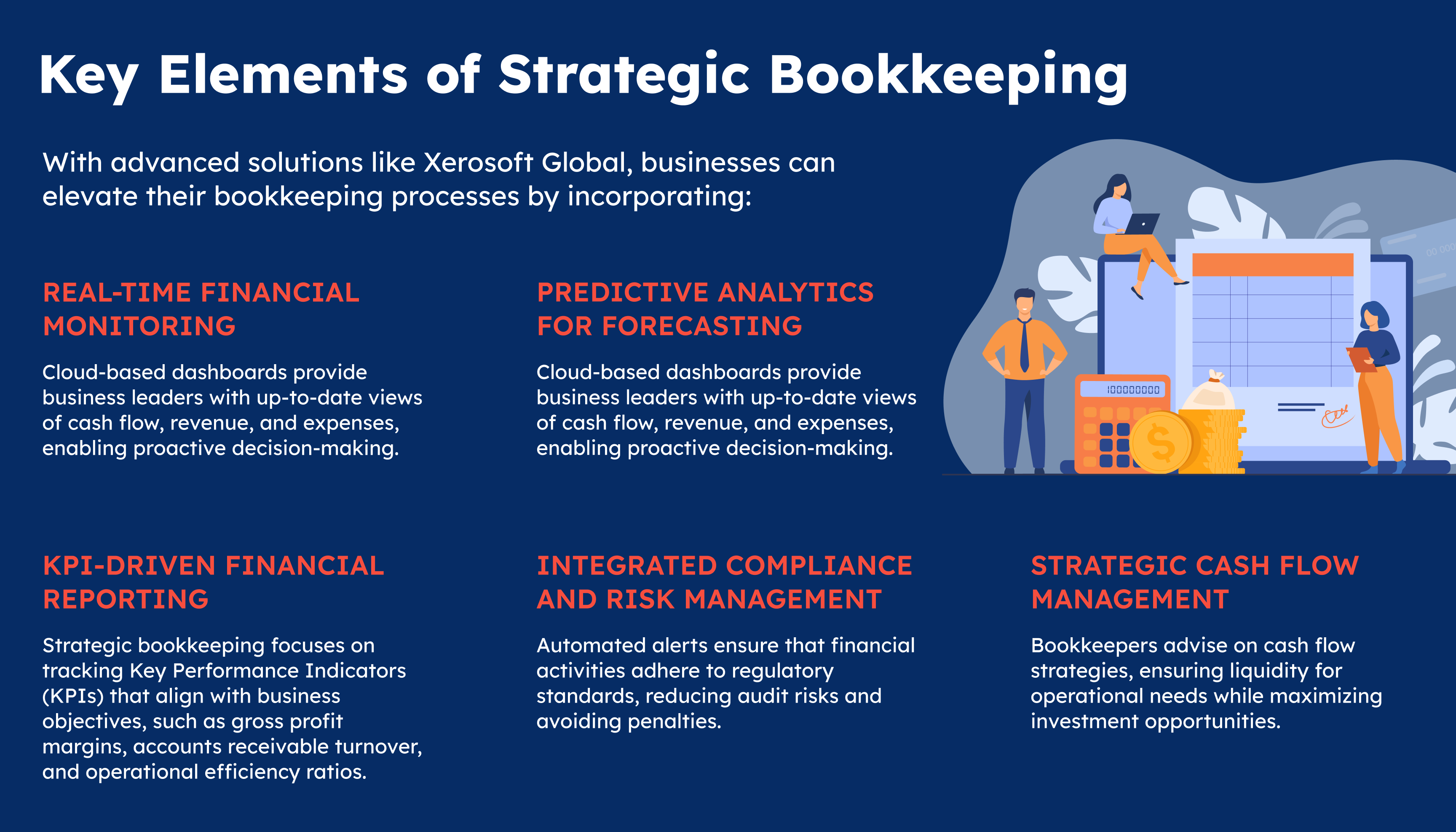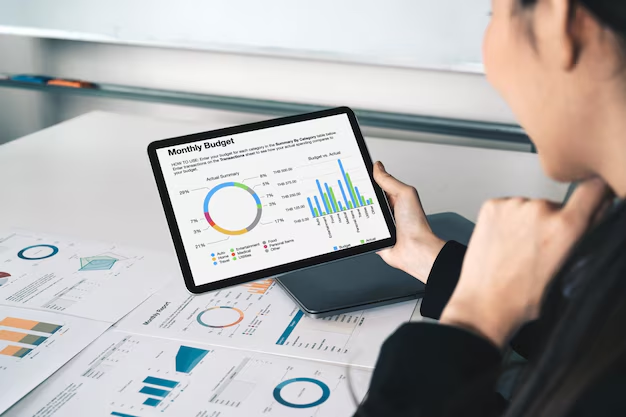In today’s data-driven business landscape, bookkeeping has evolved far beyond simple record-keeping. Modern bookkeeping is no longer just about maintaining ledgers—it’s about transforming raw financial data into actionable business insights. With platforms like Xerosoft Global, businesses are leveraging strategic bookkeeping to improve decision-making, enhance financial visibility, and fuel sustainable growth.
The Shift to Strategic Bookkeeping
The traditional role of a bookkeeper focused on transactions, receipts, and compliance. However, in 2025, the focus has expanded to include:
- Real-time financial analysis.
- Business performance tracking.
- Strategic advisory for cash flow and profitability.
- Technology-driven financial automation.
According to AICPA’s 2025 Finance Transformation Report, 72% of small and mid-sized enterprises (SMEs) now expect their bookkeepers to provide strategic financial insights—not just record transactions. The rise of intelligent automation, AI, and cloud accounting has empowered bookkeepers to move from data entry clerks to strategic financial partners.


Key Elements of Strategic Bookkeeping
With advanced solutions like Xerosoft Global, businesses can elevate their bookkeeping processes by incorporating:

Real-Time Financial Monitoring
Cloud-based dashboards provide business leaders with up-to-date views of cash flow, revenue, and expenses, enabling proactive decision-making.

Predictive Analytics for Forecasting
Cloud-based dashboards provide business leaders with up-to-date views of cash flow, revenue, and expenses, enabling proactive decision-making.

KPI-Driven Financial Reporting
Strategic bookkeeping focuses on tracking Key Performance Indicators (KPIs) that align with business objectives, such as gross profit margins, accounts receivable turnover, and operational efficiency ratios.

Integrated Compliance and Risk Management
Automated alerts ensure that financial activities adhere to regulatory standards, reducing audit risks and avoiding penalties.

Strategic Cash Flow Management
Bookkeepers advise on cash flow strategies, ensuring liquidity for operational needs while maximizing investment opportunities.
Analytics & Market Statistics
Gartner forecasts that by 2027, 70% of bookkeeping tasks will be automated, shifting bookkeepers’ roles to financial strategists.
A Deloitte 2025 SMB Finance Survey reveals that businesses with strategic bookkeeping processes are 33% more likely to achieve their financial growth targets.
Xerosoft Global’s client analysis shows that companies leveraging strategic bookkeeping solutions improved their financial forecasting accuracy by 40% and reduced manual data entry errors by over 90%.
According to PwC’s Finance Automation Trends, 65% of CFOs believe that bookkeeping insights will be integral to strategic decision-making in the next 3 years.
Key Benefits of Strategic Bookkeeping with Xerosoft Global
Improved Business Decision-Making
Access to real-time financial data and predictive analytics equips business owners with insights that drive smarter operational and strategic choices.
Enhanced Financial Visibility
Centralized dashboards simplify financial monitoring, providing a holistic view of business performance at any moment.
Scalable Financial Management
As businesses grow, Xerosoft Global ensures bookkeeping processes remain efficient, handling higher transaction volumes without increasing manual workloads.
Cost and Time Efficiency
Automation streamlines repetitive tasks, saving up to 60% of bookkeeping time, while minimizing costly human errors.
Compliance Confidence
Automated compliance features ensure financial data aligns with evolving regulations, reducing risks and safeguarding against audit issues.
Conclusion: Bookkeeping as a Strategic Asset
Strategic bookkeeping is no longer an option—it’s a necessity for businesses aiming to thrive in a competitive market. By leveraging advanced platforms like Xerosoft Global, businesses can turn their financial data into a strategic asset, enhancing visibility, driving performance, and ensuring long-term sustainability.

